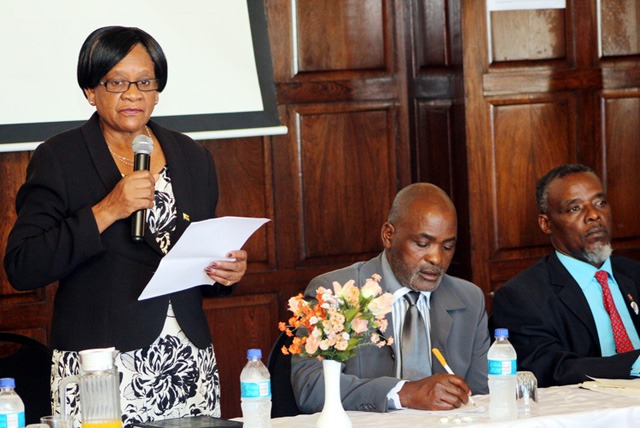Brighton Muronzereyi
THE government has launched the second review of the new curriculum framework for primary and secondary education amid implementation gaps, which includes resource constraints.
Speaking during the launch in Harare yesterday, minister of Primary and Secondary Education Evelyn Ndlovu said the process would be premised on consultations with all Zimbabweans by identifying and closing curriculum gaps and strengthening the 2015-2022 curriculum gains.
“The ministry intends to engage technical experts to support the review so as to align the curriculum with the national policies
“Once the consultations are done, we shall produce a narrative report on the implementation of the curriculum framework and its attendant assessment framework,” Ndlovu said, adding that the report would reflect the findings of the consultation process and policy position going forward.
Meanwhile, Ndlovu said the government was carrying out the review of the curriculum fully aware that its implementation had been heavily disrupted by disasters and pandemics such as Cyclone Idai in 2019 and the current global Covid-19 pandemic.
“The outbreak of the Covid-19 pandemic in 2019 did not spare us as a ministry. We had long school closures and for a while our learners were home doing nothing.
“As result of the pandemic, we came up with alternative learning strategies in emergencies in order to assure ourselves and the nation of continuity in education service provision in spite of the unexpected and unavoidable closures of physical schools,” she said.
Ndlovu said some of the stop gap measures put in place by the ministry was the establishment of a printing press for educational materials such as braille and modules, refurbishment of radio and TV studios in order to increase broadcasting services at a low cost.
“Let me put to your attention that in all our efforts, we had drawbacks in internet connectivity, broadcasting and printing among other challenges.
“Therefore, all these activities are to strengthen the provision of access to education to dovetail with the thrust towards a free universal and ICT based education.”
She said the ministry was still working to improve the new curriculum’s delivery strategies “considering that disasters and emergencies are increasing at both global; and local levels due to climate change and other unforeseen disasters.
“We have continued to procure textbooks for both primary and secondary schools across the nation. Today we have yet another consignment of about 375 372 Grade six text books…We are also going to distribute 1 950 000 textbooks for grades 3, 4, 5 6 and 7 as part of efforts to increase access to education by providing quality teaching and learning resources,” the minister added.
